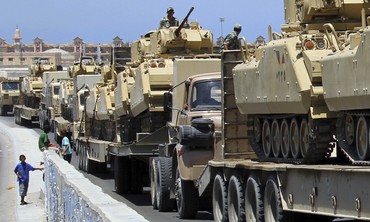
Links
Sheba Medical Centre
Melanie Phillips
Shariah Finance Watch
Australian Islamist Monitor - MultiFaith
West Australian Friends of Israel
Why Israel is at war
Lozowick Blog
NeoZionoid The NeoZionoiZeoN blog
Blank pages of the age
Silent Runnings
Jewish Issues watchdog
Discover more about Israel advocacy
Zionists the creation of Israel
Dissecting the Left
Paula says
Perspectives on Israel - Zionists
Zionism & Israel Information Center
Zionism educational seminars
Christian dhimmitude
Forum on Mideast
Israel Blog - documents terror war against Israelis
Zionism on the web
RECOMMENDED: newsback News discussion community
RSS Feed software from CarP
International law, Arab-Israeli conflict
Think-Israel
The Big Lies
Shmloozing with terrorists
IDF ON YOUTUBE
Israel's contributions to the world
MEMRI
Mark Durie Blog
The latest good news from Israel...new inventions, cures, advances.
support defenders of Israel
The Gaza War 2014
The 2014 Gaza Conflict Factual and Legal Aspects
To get maximum benefit from the ICJS website Register now. Select the topics which interest you.
Israel should retake Philadelphi

The writer is a Fellow in History at Melbourne University and director of the Zionist Organization of America’s Center for Middle East Policy.
Last week’s failed attack from the Sinai peninsula, in which terrorists killed Egyptian soldiers, was extraordinary. Terrorists operating out of Gaza do not usually attack Egyptians. They can obtain arms and materiel by sea, but the Israeli navy stops this most of the time.
That leaves the tunnels beneath the Philadelphi Corridor, the narrow strip of southern Gaza that borders Egypt. Israel left the Philadelphi Corridor in 2005 when it unilaterally evacuated Gaza. In the wider interest, as well as its own, it should retake the Philadelphi Corridor with dispatch.
The evidence that it should do so is abundant.
First, there was never a sound reason to leave the corridor. It occurred purely as an unintended byproduct of a flawed Israeli decision to leave Gaza. This unilateral withdrawal was widely criticized by the most senior military and security figures, including the former and then-serving heads of the Shin Bet (Israel Security Service), the former IDF chief of staff, deputy chief of staff and chief of IDF Intelligence, and two former heads of the Mossad.
Even so, leaving Philadelphi was not part of the original plan. That outcome was due to unexpectedly strong pressure from the George W. Bush administration, secretary of state Condoleezza Rice in particular. In short, even those who supported the unilateral withdrawal did not reckon on relinquishing control of the Gaza/Egypt border.
Second, following the withdrawal, the evidence rapidly accumulated that the system of Egyptian troops, Israeli intelligence and international monitors instituted to replace direct Israeli supervision of the border was no substitute. Instead, there was an exponential increase in the quantity of offensive weaponry entering Gaza from Egypt.
Already in 2006, the former OC Southern Command, Maj.-Gen. Doron Almog, said that “there is a need for a permanent IDF presence in the area,” while the late doyen of military analysts, Zeev Schiff, observed that “even though Israel’s security and intelligence services have given the Egyptians a list of the names of those involved in the gun running... in practice nearly nothing is being done to prevent large-scale smuggling through the Philadelphi Route.”
Third, alterations last year to the security annex of the Egyptian/Israeli peace treaty to enable Egypt to deploy a further 2,500 troops in Sinai, in addition to the 700 already on the border, have achieved nothing. The reason is not hard to find and indeed is even more obvious now than when the annex was altered: the Egyptian forces are too much in sympathy with the terrorists and too loath to clash with Hamas to engage in a thorough- going campaign of terrorist suppression.
Egyptian forces will be brutal on terrorists that attack them, but will not interfere with Hamas and other forces bringing weaponry into Gaza.
It is therefore not a matter of troop numbers but of will. Where the efforts to stamp out the traffic in men and arms are tepid, grudging and spasmodic, large battalions will not avail. And nothing – least of all the change of regime in Cairo – suggests that the willpower that was once lacking has been found.
Fourth, the recent murderous attack on Egyptian soldiers underscores all of the foregoing, while providing Israel with an opportune moment to act. The security threats from Gaza to Israel have multiplied. Terrorism emanating from Sinai has also reared its head. Last August, it claimed Israeli lives; this August, Egyptian lives. Border clashes between Israel and Egypt, once a rare occurrence, look like becoming routine. All such incidents carry the risk of putting the nail in the coffin of Egyptian/Israeli peace treaty and even producing a war.
Accordingly, the case is strong: without having to clash with an internationally recognized regime holding authority in Gaza by treaty, without resuming control of Palestinian civilians, and to the mutual benefit of Israel and Egypt – admittedly a benefit Mohamed Morsy and the Brotherhood would rather forfeit – Israel can reoccupy the Philadelphi Corridor. It would then be able, as it once was, to reduce drastically the traffic of men and arms into Gaza.
Egypt will find the means to protest this development, but it is hard to see how it can make much hay of it. In any case, a more tightly sealed Hamas is a weaker Hamas, one for which there are fewer reasons for Egypt to stick out its neck to help. And a Gaza that is deprived of weaponry in time becomes a far more containable and reducible threat to Israel. International criticism of any such Israeli move will be hamstrung for lack of any serviceable rationale justifying its stance. There is little scope to protest cutting off the traffic in terror that helped produce last week’s attack.
# reads: 1658
Original piece is http://www.jpost.com/Opinion/Op-EdContributors/Article.aspx?id=280989





















